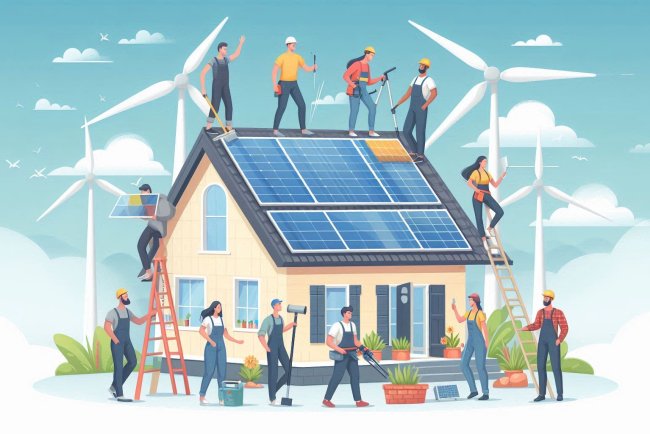Renewable Energy and Water-Energy Nexus
Explore the relationship between renewable energy and water resources in the water-energy nexus. Learn about sustainable solutions for a greener future.

Renewable Energy and Water-Energy Nexus
Renewable energy sources are becoming increasingly important in the global effort to reduce greenhouse gas emissions and combat climate change. These sources, such as solar, wind, hydro, and geothermal energy, offer sustainable alternatives to fossil fuels that can help mitigate the environmental impacts of traditional energy production. However, the relationship between renewable energy and water resources, known as the water-energy nexus, is a crucial aspect that must be considered in the transition to a cleaner energy future.
Water Use in Energy Production
Water is a vital resource in energy production, as it is used in various stages of the energy generation process. For example, water is needed for cooling in thermal power plants, such as coal-fired and nuclear power plants. In hydroelectric power generation, water is used to drive turbines and generate electricity. Even renewable energy sources like solar and wind power have water implications, as water is used in the manufacturing of solar panels and wind turbines.
Challenges of Water Use in Energy Production
As the demand for energy continues to rise, the competition for water resources between energy production and other sectors, such as agriculture and municipal use, is increasing. This competition can lead to water scarcity and conflicts over water allocation. In addition, the water-intensive nature of certain energy technologies, such as coal-fired power plants, can put further strain on water resources, particularly in water-stressed regions.
Opportunities for Renewable Energy in Addressing Water-Energy Nexus
Renewable energy sources offer opportunities to address the water-energy nexus by reducing the water intensity of energy production. Unlike conventional energy sources, such as coal and nuclear power plants, most renewable energy technologies have lower water requirements. For example, solar and wind power do not require water for cooling, making them more water-efficient alternatives. In addition, decentralized renewable energy systems, such as rooftop solar panels, can reduce the need for centralized water-intensive power plants.
Integration of Renewable Energy and Water Management
Integrating renewable energy and water management strategies can help optimize the use of both resources and enhance overall sustainability. For example, using solar-powered pumps for irrigation can reduce the reliance on fossil-fuel-powered pumps and minimize water use in agriculture. Similarly, coupling hydropower generation with water storage and flood control can provide a dual benefit of renewable energy production and water resource management.
Technological Innovations for Water-Energy Nexus
Technological innovations are driving advancements in addressing the water-energy nexus. For example, the development of water-efficient cooling technologies for thermal power plants can help reduce water consumption in energy production. Innovations in energy storage technologies, such as battery storage for renewable energy, can also help mitigate the intermittent nature of certain renewable energy sources and enhance overall energy efficiency.
Policy and Planning for Sustainable Water-Energy Nexus
Effective policy and planning are essential for promoting a sustainable water-energy nexus. Governments and stakeholders can implement regulations and incentives to encourage the adoption of water-efficient renewable energy technologies and practices. Integrated resource planning that considers both energy and water needs can help identify synergies and trade-offs between the two resources and optimize their use.
Benefits of Addressing the Water-Energy Nexus
Addressing the water-energy nexus through the promotion of renewable energy can yield multiple benefits. By reducing the water intensity of energy production, renewable energy can help alleviate water stress in water-scarce regions and enhance water security. Furthermore, transitioning to renewable energy can contribute to climate change mitigation and reduce the environmental impacts of energy production on water resources.
Conclusion
The water-energy nexus presents a complex challenge that requires a holistic approach to address the interdependencies between water and energy resources. Renewable energy technologies offer promising solutions to reduce the water intensity of energy production and promote sustainability in both sectors. By integrating renewable energy and water management strategies, leveraging technological innovations, and implementing effective policy and planning measures, we can work towards a more sustainable future where energy production is environmentally responsible and water resources are preserved for future generations.
What's Your Reaction?

















